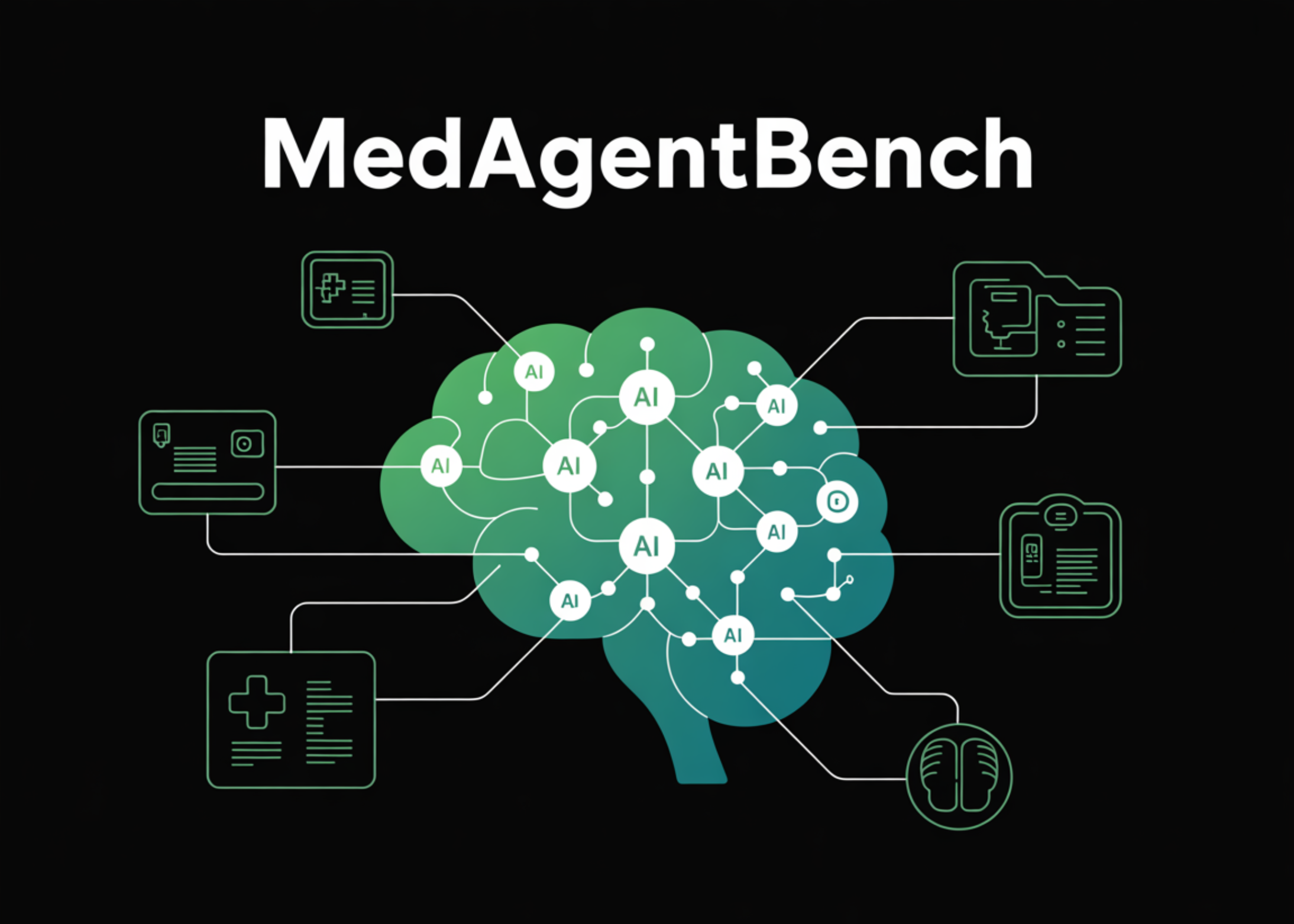
Stanford Unveils MedAgentBench: A Game-Changer for Healthcare AI Evaluation
A team of researchers from Stanford University has introduced MedAgentBench, a groundbreaking benchmark suite aimed at evaluating large language model (LLM) agents specifically within healthcare contexts. This innovative tool represents a significant advancement in the assessment of AI capabilities, moving beyond traditional question-answering datasets.
Unlike previous benchmarks, MedAgentBench creates a virtual electronic health record (EHR) environment where AI systems are required to interact, plan, and execute complex multi-step clinical tasks. This shift emphasizes the importance of agentic capabilities in real-world medical workflows, transitioning from static reasoning assessments to dynamic evaluations of AI performance.
Why Agentic Benchmarks Matter in Healthcare
The evolution of recent LLMs has enabled them to perform beyond simple chat-based interactions. These models are now capable of interpreting high-level instructions, calling APIs, integrating patient data, and automating intricate processes. Such advancements are vital in the medical field, especially as they can help alleviate issues like staff shortages, documentation burdens, and administrative inefficiencies.
While general-purpose agent benchmarks, such as AgentBench and tau-bench, have been developed, the healthcare sector lacked a standardized benchmark that could accurately reflect the complexity of medical data, FHIR interoperability, and the nuances of longitudinal patient records. MedAgentBench fills this critical gap, providing a reproducible framework that enhances the evaluation of AI in clinical settings.
Implications for the Future of Healthcare AI
The introduction of MedAgentBench is poised to revolutionize how healthcare AI agents are assessed. By focusing on the practicalities of medical workflows, it allows for a more thorough understanding of how AI can be integrated into clinical practice. This could lead to more efficient healthcare delivery systems and improved patient outcomes.
As the medical field continues to embrace artificial intelligence, tools like MedAgentBench will play a crucial role in shaping the future of healthcare technology.
Rocket Commentary
The introduction of MedAgentBench by Stanford University marks a pivotal moment in the evaluation of AI's role in healthcare. By simulating a virtual EHR environment, this tool goes beyond traditional benchmarks to assess how LLM agents navigate complex clinical tasks. This shift towards agentic benchmarks holds the potential to revolutionize AI applications in healthcare, ensuring that these systems can operate effectively in real-world scenarios. However, while the promise is significant, we must remain vigilant about the ethical implications and accessibility of such technologies. As AI continues to transform the healthcare landscape, it is crucial that these advancements are implemented in a way that prioritizes transparency and equitable access, fostering trust among healthcare professionals and patients alike.
Read the Original Article
This summary was created from the original article. Click below to read the full story from the source.
Read Original Article